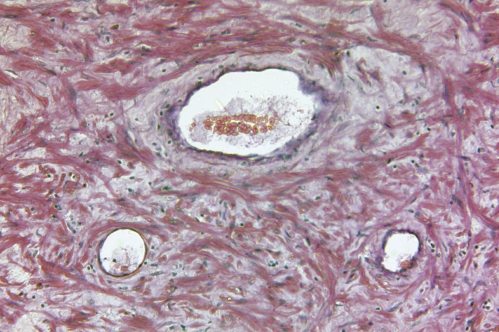For the first time, sexual maturation was assessed using genetic markers. The international research team, which included academics from the University of Bristol, found these early puberty genes were associated with an increased risk of prostate cancer in later life.
Genes that could indicate sexual maturation were identified, and each man was given a score dependent on how many of these maturity genes were present. Measuring sexual maturation in this way allows for a possible causal link to be drawn between reaching puberty early and an increased risk of prostate cancer. This method is also more reliable than the conventional use of physical pubertal changes, which are imprecise and difficult to isolate.
The link between genetic factors that influence when boys enter puberty and prostate cancer could be due to the effect of early and prolonged increased levels of growth hormones, which are altered with puberty, although this remains to be examined.
Prostate cancer is the most common cancer in men in the UK, with more than 47,000 new cases each year. More than 10,000 men die of the cancer each year. Worldwide, it is the second most common cancer in men.
Dr Panagiota Mitrou, Director of Research Funding at World Cancer Research Fund, said: “These results are very exciting as they show evidence of life course influences on prostate cancer risk including the aggressive form of the disease.
“We now need to better understand the findings. If growth factor hormones are shown to be the driving force behind age of puberty and prostate cancer risk and progression, they could help us develop dietary interventions to promote healthy growth and hence protect against prostate cancer in adulthood.
“There are, however, other ways men can help reduce their prostate cancer risk, such as maintaining a healthy weight.”
Professor David Neal, study principal investigator at the University of Cambridge, said: “This is the first time genetic markers have been used to measure sexual maturation. The research is particularly interesting because it has demonstrated a new way to look at risk factors, which allows more potential cause and effect relationships to be established.
“With prostate cancer being the most common cancer in men in the UK, prevention is key if we are to see a decrease in the number of men developing the disease.”
Professor Richard Martin, study researcher at the University of Bristol School of Social and Community Medicine, said: “There are still many unanswered questions around what could prevent prostate cancer. However, these results linking sexual maturation and prostate cancer risk could help fill some of the gaps in our knowledge.
“What might be linking earlier age of puberty with the increased risk of prostate cancer are the effects of growth factor hormones and male sex hormones, which should be examined more closely in future research.”
Paper
‘Pubertal development and prostate cancer risk: Mendelian randomization study in a population-based cohort’ by Bonilla et all in BMC Medicine.
